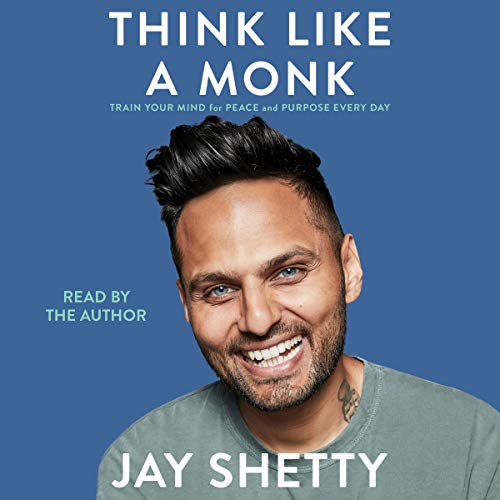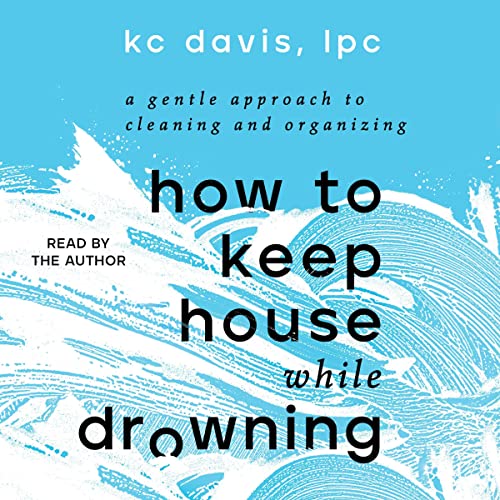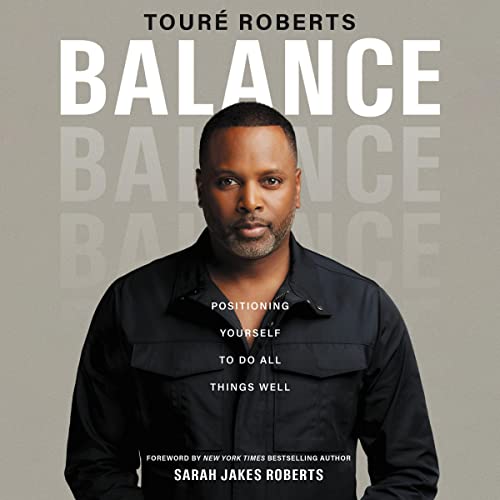10 Stress Management Books to Read in 2023
Are you feeling overwhelmed and struggling to find balance in your daily life? Dealing with stress can be challenging, but luckily, there are numerous resources available to help you learn how to manage it.
In this article, we’ll introduce you to ten amazing stress management books that can transform the way you approach stress and enable you to handle it more effectively. Buckle up, because it’s time to embark on a journey towards a more relaxed and stress-free life!
- Best Stress Management Books: Reviews
- 1. Think like a monk
- 2. Let that SH*t go
- 3. How to keep house while drowning
- 4. Don’t believe everything you think
- 5. Burnout: The secret to unlocking the stress cycle
- 6. Stop overthinking: 23 techniques to relieve stress
- 7. When the body says no: The cost of hidden stress
- 8. Balance: Positioning Yourself to Do All Things Well
- 9. When the body says no: Exploring the stress-disease connection
- 10. The art of letting go
- Conclusion
Best Stress Management Books: Reviews
Looking for ways to better manage stress? You’re in luck, as there are numerous books available to help guide and empower you on your journey towards a more relaxed and balanced life. From “Think Like a Monk” to “The Art of Letting Go,” there’s something for everyone seeking to transform their approach to stress management.
1. Think like a monk
“Think Like a Monk” is a book that goes beyond typical stress management techniques by drawing on ancient wisdom found in monastic practices to help readers cultivate mindfulness in every aspect of their lives.
Written by Jay Shetty, a former monk turned motivational speaker and life coach, the book reveals how traditional practices of monks can be incorporated into our modern lives to help alleviate stress and find a sense of inner peace.
Through stories, science, and personal experiences, Shetty shares the tools and techniques used by monks to foster a greater understanding of the self, promote positivity, and release anxiety from daily life. Some of these teachings include daily meditations and reflections, mental exercises to build resilience, and methods for clearing overwhelming thoughts and negativity.
Think Like a Monk” is not only about calming the mind and reducing stress, but rather it teaches us to embrace a more purpose-driven mindset, which, in turn, helps us develop a stronger connection to ourselves and others.
By focusing on the journey of self-discovery and self-mastery, Shetty encourages us to let go of expectations, discover our unique gifts, and ultimately, adopt the ancient wisdom of monks in our daily lives.
Whether you are looking to reframe your thought processes or find a renewed sense of clarity, “Think Like a Monk” could be your guide to building the mental resilience necessary to navigate the stresses of modern life with grace and balance. Give it a read to explore how adopting a monk-like mindset can transform your stress management approach.
2. Let that SH*t go
In “Let That Sh*t Go,” authors Nina Purewal and Kate Petriw brilliantly provide practical, mindful techniques to help you achieve mental clarity and relieve stress. This book is a lighthearted and relatable guide to overcoming everyday challenges and developing a healthier relationship with your thoughts, emotions, and overall well-being.
One of the key takeaways from this book is the concept of mindfulness, which encourages a non-judgmental awareness of the present moment. By practicing mindfulness, we learn to keep our focus on the present instead of ruminating on the past or worrying about the future.
The book also offers tips on how to incorporate mindfulness and meditation into your daily routine, without it feeling like a chore.
Additionally, “Let That Sh*t Go” provides actionable advice on how to deal with common sources of stress, such as toxic relationships, information overload, and societal expectations. By examining our thought patterns and habits, we can begin to recognize the triggers that cause us stress and take steps to mitigate them.
Filled with humorous anecdotes, personal stories, and inspiring quotes, this engaging book reminds us that it’s OK to let go of the things that don’t serve us in order to create space for happiness and contentment. Whether you’re new to stress management or a seasoned veteran, “Let That Sh*t Go” offers an insightful and enjoyable route to a more balanced and stress-free life.
3. How to keep house while drowning
“How to Keep House While Drowning” by KC Davis is different from the usual self-help books. Instead of offering generic advice, the author understands the reality of feeling overwhelmed and uses that relatability to create a compassionate, helpful guide. This book speaks to those who feel like they’re drowning in the endless responsibilities of daily life, especially when it comes to keeping a home clean and organized.
Whether you’re a working professional, parent, or just someone who has a hard time managing stress, “How to Keep House While Drowning” offers practical solutions to help you find balance and peace. The author breaks down housekeeping tasks into manageable steps, so you can slowly regain control of your space and your stress levels.
What sets this book apart from other stress management books is its acknowledgment of mental health challenges such as anxiety and depression, which can significantly impact one’s ability to maintain a clean living environment.
Davis does an incredible job of addressing these struggles with compassion and understanding, offering not only practical advice but also emotional support.
By the end of “How to Keep House While Drowning,” readers will have a better understanding of their stressors, their limits, and the importance of self-care – while also learning useful techniques to maintain a clean and organized home.
Don’t let the chaos of life overwhelm you; this book will help you regain control and transform your approach to stress management.
4. Don’t believe everything you think
Another great read on our list of stress management books is “Don’t Believe Everything You Think” by Thomas E. Kida. This insightful book delves into the common thinking errors that oftentimes lead to stress and anxiety in our lives.
By understanding these cognitive biases and learning how to counteract them, we can greatly improve our stress management skills.
Kida breaks down the ten common cognitive biases, such as the confirmation bias and the belief that things are better or worse than they really are. He explains the impact these biases have on our decision-making and ultimately, our stress levels.
The author uses real-life examples and case studies to illustrate the concepts, making it an engaging and relatable read.
One notable takeaway from this book is the importance of questioning our thoughts and not accepting them at face value. Instead, we should engage in critical thinking and evaluate our beliefs against the evidence. This helps us make more informed decisions and reduces the stress that comes from making decisions based on flawed thinking.
“Don’t Believe Everything You Think” is a practical and insightful guide to help you identify and overcome the cognitive biases that may be contributing to unnecessary stress in your life. By employing the strategies outlined in this book, you’ll learn how to manage stress more effectively and live a happier, more balanced life.
5. Burnout: The secret to unlocking the stress cycle
In “Burnout: The Secret to Unlocking the Stress Cycle,” authors Emily Nagoski, Ph.D., and Amelia Nagoski, DMA, focus on the unique stress experiences of women.
They reveal that the root cause of women’s burnout lies in the gap between what society expects them to be and who they really are. This book not only empowers readers to recognize the pressures they experience daily but also provides science-backed tips to help them break free from the cycle of stress.
The authors introduce the concept of “completing the stress cycle,” allowing readers to understand that emotion-driven stress must be dealt with separately from external stressors. They detail seven practical strategies, including physical activity, creative expression, and developing deep connections, to help manage emotional stress effectively.
“Burnout” allows readers to better understand the elusive and complex nature of stress by examining the systemic and societal factors that contribute to women’s burno
ut. With its relatable writing style and humorous yet empathetic tone, this book is sure to resonate with overwhelmed women everywhere.
So, if you’re tired of feeling stuck in a loop of unending pressure, this read might just give you the tools you need to finally break free from the stress cycle and reclaim your emotional well-being. Transform your stress management approach today by adding this insightful and empowering book to your reading list.
6. Stop overthinking: 23 techniques to relieve stress
In “Stop Overthinking: 23 Techniques to Relieve Stress,” author Nick Trenton provides a comprehensive guide to overcoming the mental clutter that often triggers stress. This book helps you identify the internal and external factors that contribute to overthinking and offers practical solutions to take back control.
Each of the 23 techniques presented in this book is designed to help you reassess your thoughts and break free from the cycle of overthinking. Some of these methods include re-framing your mindset, de-cluttering your mental space, proper time-management, and meditation techniques. Moreover, Trenton provides guidance on how to prevent overthinking from becoming a recurring issue in your life.
The easy-to-implement tips and techniques make “Stop Overthinking: 23 Techniques to Relieve Stress” an invaluable resource for those who often find themselves caught up in their thoughts.
As you progress through these techniques, you’ll not only learn how to cope with stress better but will also experience a sense of calmness and tranquility in your everyday life.
By addressing the root cause of stress and providing actionable steps to manage it effectively, this book helps you transform your stress management approach for the better.
7. When the body says no: The cost of hidden stress
In “When the Body Says No: The Cost of Hidden Stress,” author and physician Dr. Gabor Maté offers a vital perspective on how our bodies react to stress in real-time, often leading to serious health issues down the line.
He presents case studies from his own practice and delves into the science of the mind-body connection, making it clear that mental wellbeing is crucial for our overall health and longevity.
This book will help you understand how suppressed emotions, such as anger or frustration, can result in various illnesses like autoimmune disorders, cancer, and heart disease.
Dr. Maté also discusses the importance of emotional and mental self-awareness in catching and mitigating these effects before they manifest in physical illness. By understanding our bodies’ signals and what causes them, we can begin to address the root causes of our stress.
A valuable takeaway from this book is the need to maintain healthy boundaries, not just in our personal lives but also at work. Dr. Maté emphasizes that saying “no” when necessary can be a powerful tool for protecting our health.
“When the Body Says No” will make you rethink the correlation between mental stress and physical health, arming you with valuable knowledge to take better care of yourself. By acknowledging and addressing our hidden stressors, we may prevent chronic health conditions from developing and improve our overall quality of life.
8. Balance: Positioning Yourself to Do All Things Well
Balance: Positioning Yourself to Do All Things Well by Catherine Sanderson is a practical, actionable guide to help you reduce stress and find a healthy work-life balance. Written by a psychologist with expertise in happiness and stress management, this book equips you with the tools to thrive in all aspects of your life.
The book is centered around three primary concepts: time management, goal setting, and boundary setting. Sanderson discusses practical ways to organize your daily schedule effectively and set realistic goals without feeling overwhelmed. She also emphasizes the importance of establishing boundaries between work and personal life, which can drastically improve your mental health.
What sets this book apart from others is its focus on self-reflection and personal growth. By examining the causes of your stress and addressing them directly, you can gradually develop a healthier and more balanced lifestyle.
The book includes real-life examples, case studies, and easy-to-follow exercises that help you hone your time management and goal-setting skills.
In sum, Balance: Positioning Yourself to Do All Things Well provides actionable, research-backed techniques that help you reduce stress and find harmony in your life. By implementing these strategies, you’ll become more resilient in the face of workplace challenges and be better equipped to handle personal and professional obligations.
9. When the body says no: Exploring the stress-disease connection
In “When the Body Says No: Exploring the Stress-Disease Connection,” Dr. Gabor Maté combines scientific research with real-life stories to highlight the connection between stress and illnesses like heart disease, diabetes, autoimmune disorders, and cancer.
Integrating insights from Western and Eastern medical perspectives, Maté delves into the reasons behind our body’s way of saying “no” when faced with chronic stress.
This compelling book provides an understanding of how our emotions and mental state can impact our physical health. It encourages readers to consider their lifestyles and engage in self-reflection to identify and address the areas causing undue stress.
The author’s compassionate exploration of the ways people suffer psychologically and physically from stress provides a holistic approach to managing it.
Dr. Maté’s work is a powerful reminder of the importance of our emotional and mental well-being and their interconnected relationship with our physical health. Readers can learn valuable insights into the mind-body connection that can be applied to their daily lives to support improved health, happiness, and personal growth. This fascinating book is, therefore, an essential read and a compelling addition to the list of stress management books.
10. The art of letting go
In “The Art of Letting Go,” author Rania Naim delves into the emotional power of releasing the things that don’t serve us. As many stress management books often focus on changing your thinking or developing new habits, this book takes a slightly different approach.
By exploring the emotional and spiritual aspects of stress, Naim teaches readers how to truly let go of unhelpful mindsets, toxic relationships, and unnecessary pressure.
Through poetry and prose, Naim shares personal anecdotes and heartwarming stories that make the concept of letting go approachable and relatable. By embracing the art of letting go, we can become the architects of our own happiness and peace, both of which are essential for effective stress management.
As you journey through this transformative book, you’ll learn how to accept change gracefully, stop trying to control everything, and trust that life has a plan for you. “The Art of Letting Go” reminds us that sometimes, the best way to manage stress is simply to release the weights that are holding us down.
In summary, when you are feeling overwhelmed by stress, these ten stress management books can empower you with the tools and perspectives you need to regain balance in your life. By incorporating the powerful lessons from these books into your daily routine, you’ll be more equipped to handle life’s challenges and ultimately, create a more fulfilling, stress-free existence.
Conclusion
These stress management books offer unique perspectives and techniques to help you manage stress more effectively. Each book provides different insights and coping mechanisms to help you overcome stress, live a more balanced life, and prioritize your mental well-being. Give them a read, and you may discover new perspectives that resonate with you and lead to lasting change.

















